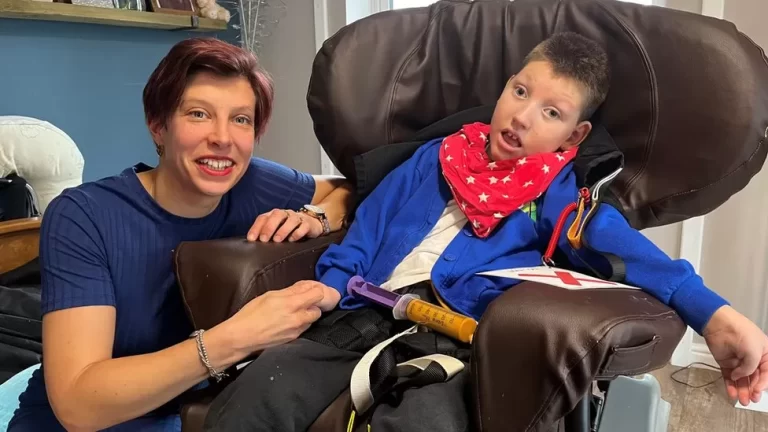A 10-year-old boy with a currently incurable brain disease is feeling hopeful about a new treatment.
It took three years for Olly from Andover, Hampshire, to be diagnosed with TUBB4A leukodystrophy. The condition causes disruption to the signals between nerve cells in the brain and means Olly, who was three years old when he was diagnosed in 2015, is blind and non-verbal.
But Oxford-based biotech company SynaptixBio is now working on a cure. Olly's mother, Claire, said she had a normal pregnancy, labour and birth but when her son was six months old, she noticed he could not sit up or control his head movements.
After two years of tests, he was diagnosed with hypomyelination with atrophy of the basal ganglia and cerebellum (H-ABC) – a severe form of TUBB4A leukodystrophy. Claire, 40, said: “Finding out Olly suffered from a life-threatening illness came as a total surprise, and of course it was devastating news.
“Unfortunately because it is so rare, the doctors were saying, ‘we don't know, we don't know about this condition, we don't know what's what, there's no treatment, there's no cure'.”
SynaptixBio has teamed up with a hospital in Philadelphia and secured £13.2m in funding to try to develop a drug to help those with the condition. Scientists are working with antisense oligonucleotides (ASOs), molecules that have previously been used to treat conditions such as Duchenne muscular dystrophy.
It is hoped the drug, which is currently scheduled to go to clinical trials next year, could potentially reduce the amount of mutated protein that causes H-ABC.
“We hope [the drug] will alleviate the disease and potentially reverse some of the issues we are seeing in patients,” said Dr Dan Williams, chief executive of SynaptixBio.
Dr Williams is also concerned about the diagnosis times for the disease. He added: “TUBB4A leukodystrophy has only recently been identified, so it's not surprising that general knowledge isn't widespread within the NHS.

“But the concern remains that undiagnosed children may suffer more than is necessary.” Claire said she will be eagerly awaiting the results of the trial.
“It does concern us when he transitions from a child into an adult,” she said.
In the meantime, Olly is happy, attending a specialist school and spending time with his two brothers. Claire added: “They always include him with what they are up to. It's lovely to see when you get a big smile from Olly.”
— CutC by bbc.com


